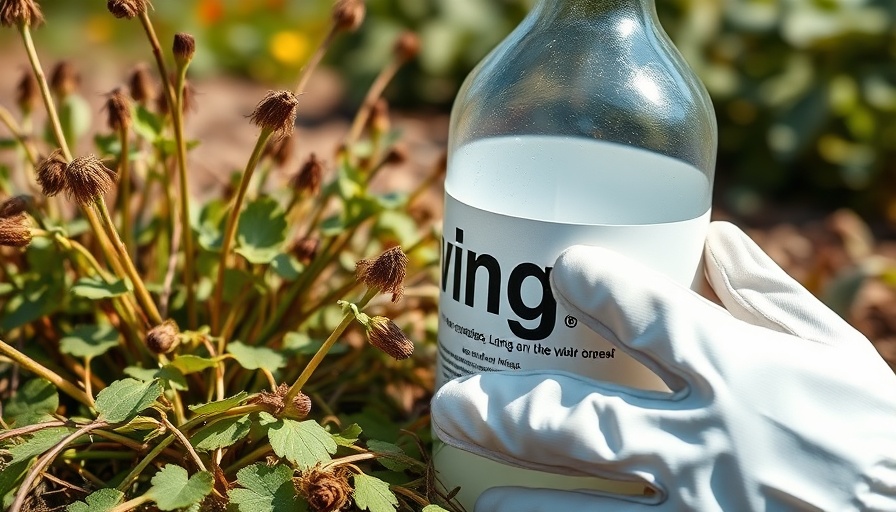
The Hidden Dangers of Using Vinegar as a Weed Killer
In the quest for eco-friendly gardening solutions, many homeowners turn to vinegar as a natural weed killer. However, this popular DIY remedy may pose significant risks to both your garden and the environment. While it's true that vinegar is a natural substance, boasting attributes of being biodegradable and easily accessible, its effectiveness and safety as a herbicide have raised critical concerns.
Why Do People Choose Vinegar?
The allure of vinegar lies in its reputation as a natural alternative to commercial herbicides. Promoters of its use argue that it can effectively kill broadleaf weeds, providing instant gratification by burning the leaves upon contact. This leads many DIY enthusiasts to raid their kitchens for a solution to pesky weeds sprouting in their lawns. Yet, it's imperative to grapple with the reality that vinegar poses hazards that outweigh its perceived benefits.
Reality Check: Does Vinegar Really Work?
Upon application, a typical household vinegar solution, containing only 5% acetic acid, may momentarily wilt weeds, but this is not a solution for long-term weed management. Vinegar's primary function is to act as a contact herbicide, which means it only affects the leaves rather than rooting out weeds entirely. Consequently, even if a weed appears dead post-application, its roots often remain intact, allowing for regrowth.
Environmental and Personal Safety Precautions
Higher concentrations of vinegar, such as horticultural vinegar (up to 30% acetic acid), are undeniably more effective against persistent weeds. However, these potent formulations come with inherent dangers, not only threatening plants but also harming beneficial insects like bees and butterflies. Such concentrations can cause skin burns and eye injuries, as highlighted by experts in lawn care and horticulture. Thus, the allure of an organic approach leads users down a potentially hazardous path.
Alternatives to Vinegar for Organic Weed Control
Instead of relying on vinegar, consider integrating time-tested methods into your gardening routine. Techniques such as preventive mulching, timely weeding, and employing lawn care services can deliver safer and more effective results. For homeowners wishing to maintain a lush lawn while mitigating weeds, using a hand cultivator or mechanical weeding tools provides a solution that nurtures the garden's health without sacrificing safety.
Conclusion: Rethink Your Approach to Weeding
The pursuit of a beautiful garden need not come at the expense of safety or environmental health. While vinegar may seem like a harmless household staple, its role as a weed killer can lead to unintended consequences for your yard and surrounding ecosystems. For sustainable gardening practices, consider safe alternatives that protect not only your plants, but also the valuable creatures that contribute to a balanced environment. Prioritize professional guidance or alternative organic practices to safeguard your garden effectively.
 Add Row
Add Row  Add
Add 




Write A Comment